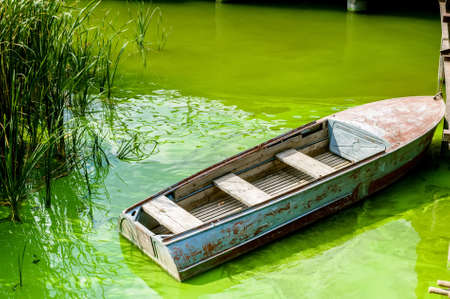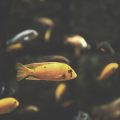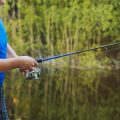Introduction to Sustainable Trout Fly Fishing in Britain
Trout fly fishing holds a special place within the cultural tapestry of Britain, echoing centuries-old traditions across its scenic rivers and chalk streams. This beloved pastime is not merely a sport but a celebration of the nation’s natural heritage, with each cast connecting anglers to a legacy of stewardship and respect for the waterways. As environmental awareness grows and our waterways face mounting pressures from pollution, climate change, and habitat loss, ethical angling practices have become paramount. The modern British fly fisher is called to balance competitive spirit with responsibility, ensuring that enjoyment of this quintessentially British pursuit does not come at the expense of future generations or the delicate ecosystems that support wild trout. With increasing emphasis on conservation and sustainable techniques, trout fly fishing is evolving into a model of how tradition and innovation can work hand-in-hand for the benefit of both anglers and the environment.
Ethical Considerations in British Fly Fishing
At the heart of sustainable trout fly fishing on British waterways lies a commitment to ethics, steeped in centuries-old traditions and a deep respect for both the fish and the environment. Ethical considerations in this context are not simply about following rules—they embody sportsmanship, fish welfare, and the collective duty of anglers to uphold the cherished values that have defined British angling culture.
Sportsmanship on the Water
British fly fishing is renowned for its emphasis on fair play and camaraderie. Anglers are expected to show consideration for fellow fishers by observing river etiquette, such as yielding pools, sharing space respectfully, and keeping noise to a minimum. This spirit of mutual respect extends beyond human interactions; it shapes how one approaches the entire angling experience.
Fish Welfare: Best Practices
The welfare of trout takes centre stage in ethical fly fishing. From the choice of tackle to the methods used for landing and releasing fish, every decision influences their wellbeing. The table below outlines key practices that promote fish health:
| Practice | Ethical Rationale |
|---|---|
| Use barbless hooks | Reduces injury and facilitates safe release |
| Minimise handling | Lowers stress and preserves protective slime layer |
| Keep fish wet | Prevents gill damage and dehydration |
| Swift release | Increases survival rates post-capture |
Shared Responsibilities: Upholding Tradition
The responsibility of conservation is shared among all who enjoy Britain’s rivers and lakes. Anglers act as stewards—reporting pollution, participating in habitat restoration, and educating newcomers about local regulations and customs. This collective approach not only safeguards fish stocks but also ensures that the unique character of British fly fishing endures for future generations.
Summary Table: Ethical Obligations of British Fly Fishers
| Obligation | Description |
|---|---|
| Respect for Others | Observe etiquette, share water, foster a welcoming atmosphere |
| Care for Fish | Pursue humane capture and release techniques at all times |
| Environmental Stewardship | Engage in conservation efforts and protect natural habitats |
| Cultural Preservation | Uphold traditions and pass on knowledge to new anglers |
This strong ethical foundation is what sets British fly fishing apart—ensuring that every cast honours both the past and the promise of tomorrow’s waters.

3. Conservation Challenges of British Waterways
Preserving trout populations in the UK’s rivers and streams is a complex task, with several interlinked threats undermining efforts towards sustainable fly fishing. Analysing these challenges is crucial for anglers and conservationists alike, as ethical practices depend on understanding and addressing the risks facing British trout habitats.
Pollution: An Escalating Threat
Water pollution remains one of the most pressing issues confronting British waterways. Agricultural runoff, containing fertilisers and pesticides, seeps into rivers, altering water chemistry and reducing oxygen levels vital for trout survival. Urbanisation introduces further contaminants such as sewage overflows and industrial effluents. These pollutants not only degrade spawning grounds but also affect insect life, the primary food source for trout, ultimately impacting fly fishing success and ecosystem health.
Overfishing and Unsustainable Practices
The popularity of fly fishing can put immense pressure on local trout stocks if not managed responsibly. In heavily fished waters, especially near urban centres or renowned beats, overharvesting threatens to tip the ecological balance. While catch-and-release is increasingly promoted across the UK, improper handling or excessive fishing during breeding seasons can still result in significant mortality rates. This highlights the necessity for strict adherence to angling codes of conduct and river-specific regulations.
Climate Change: Shifting Conditions
Rising temperatures and unpredictable weather patterns are altering the very nature of British waterways. Warmer summers reduce dissolved oxygen levels, while irregular rainfall leads to more frequent floods and droughts. Such fluctuations disrupt traditional trout spawning cycles and can cause population declines. Additionally, invasive species—better suited to new conditions—may outcompete native trout, compounding the challenge for both conservationists and ethical anglers.
The Localised Impact
It’s important to recognise that these threats manifest differently across regions—from chalk streams in southern England to upland rivers in Scotland. Tailored conservation strategies are essential to address specific local pressures and maintain the unique character of each fishery.
Towards Sustainable Solutions
By analysing these threats within a UK context, anglers are better equipped to make informed choices on the water. Adopting evidence-based strategies—such as supporting habitat restoration projects or participating in citizen science monitoring—can help safeguard Britain’s wild trout for future generations of fly fishers.
4. Sustainable Fly Fishing Techniques and Tackle Choices
Practising sustainable trout fly fishing on British waterways requires anglers to adopt both ethical methods and environmentally considerate tackle choices. By carefully selecting techniques and gear, we not only preserve our cherished rivers and lakes but also elevate the sporting challenge and enjoyment of every session.
Best-Practice Methods for Sustainable Angling
The cornerstone of sustainable fly fishing lies in minimising our ecological footprint. Catch and release, when performed correctly, ensures fish populations remain healthy for future generations. Use barbless hooks or crimp down barbs to make unhooking easier and less stressful for trout. Wetting hands before handling fish, using knotless landing nets, and keeping trout in the water during release all contribute to higher survival rates. Furthermore, respecting seasonal restrictions and adhering to local bylaws demonstrates a commitment to conservation principles embedded in British angling culture.
Gear Choices That Support Conservation
Thoughtful selection of tackle can greatly reduce environmental impact. Modern fly lines and leaders made from biodegradable materials are now available, diminishing pollution risks should breakage occur. Opt for reusable fly boxes and containers instead of single-use plastics. Choose rods that are responsibly sourced—many UK manufacturers now offer eco-friendly options using sustainable materials. When wading, use felt-free boots to prevent the spread of invasive species between waterways.
| Tackle Choice | Sustainable Advantage |
|---|---|
| Barbless Hooks | Reduces injury to fish during release |
| Biodegradable Leaders | Minimises long-term pollution if lost |
| Knotless Landing Net | Protects trout’s delicate slime layer |
| Eco-Friendly Fly Boxes | Cuts down on plastic waste |
| Sustainable Rod Materials | Supports responsible manufacturing |
| No-Felt Wading Boots | Prevents aquatic invasive transfer |
Local Fly Patterns: Tradition Meets Sustainability
Selecting locally inspired fly patterns not only honours the rich heritage of British angling but also supports sustainability by reducing reliance on exotic or unsustainably sourced materials. Patterns such as the Greenwell’s Glory, North Country Spider, and Red Tag are time-honoured favourites that mimic indigenous insect life, maximising effectiveness while limiting environmental disruption. Modern tiers increasingly opt for synthetic or ethically sourced materials in these patterns, further supporting conservation goals.
Balancing Performance with Preservation
Sustainable technique is about balance: achieving rewarding sport while safeguarding habitats and native trout populations. By reviewing best-practice methods, choosing environmentally friendly gear, and embracing traditional local flies with modern ethics, British anglers can enjoy exceptional sport whilst acting as custodians of their treasured waterways.
5. Community Initiatives and Stewardship
Sustainable trout fly fishing in Britain is not solely the responsibility of individual anglers; it is underpinned by the collective efforts of communities, angling clubs, conservation groups, and public campaigns. Across the UK, local angling societies play a pivotal role in river stewardship, often acting as custodians of stretches of water that are vital habitats for native trout. These clubs work tirelessly on habitat restoration projects, from removing invasive species to replanting native vegetation along riverbanks, all designed to improve spawning grounds and water quality.
Organisations such as the Wild Trout Trust and the Angling Trust spearhead large-scale initiatives aimed at protecting Britain’s rivers and lakes. Their work encompasses scientific monitoring, education programmes, and lobbying for stronger environmental legislation. Through workshops and outreach events, these groups empower local residents and young people to take an active interest in their waterways. This fosters a culture of stewardship rooted in respect for both the environment and the angling tradition.
Public campaigns like “Love Your River” raise awareness about pollution, littering, and over-abstraction. By mobilising volunteers for clean-up days or citizen science projects, these movements galvanise communities into action. The ripple effect is significant: cleaner rivers support more robust trout populations and ensure that future generations can enjoy the quintessentially British pastime of fly fishing.
Community engagement also extends to collaboration with landowners and farmers to adopt sustainable agricultural practices that minimise runoff and protect riparian zones. These partnerships illustrate how effective conservation relies on cooperation across different sectors of society. Ultimately, these grass-roots initiatives exemplify ethical angling in practice—demonstrating that the preservation of British waterways is a shared responsibility demanding both passion and commitment.
6. Regulations, Codes of Conduct, and Responsible Access
In the realm of sustainable trout fly fishing on British waterways, a robust framework of regulations, voluntary codes, and local customs provides the ethical foundation for both conservation and angling enjoyment. Understanding and adhering to these rules not only safeguards fish populations but also ensures the long-term health of aquatic habitats across the UK.
Legal Framework: Protecting Waterways and Wildlife
British law sets out clear guidelines for trout anglers. The Environment Agency in England and Natural Resources Wales regulate closed seasons, minimum size limits, and catch quotas to protect breeding stocks. Anglers must hold a valid rod licence before casting a line—fishing without one can result in hefty fines. Many rivers are further governed by specific byelaws tailored to their unique ecological needs, reflecting a commitment to local biodiversity.
Voluntary Codes: Raising the Bar for Ethical Practice
Beyond statutory requirements, respected bodies such as the Wild Trout Trust and Salmon & Trout Conservation UK have developed voluntary codes of conduct that promote best practice among fly fishers. These include recommendations on catch-and-release techniques, the use of barbless hooks to minimise harm, and guidance on handling fish with wet hands to preserve their protective slime layer. By following these principles, anglers demonstrate respect for both their quarry and fellow river users.
Local Customs: Community Wisdom in Action
Ethical fly fishing is also shaped by regional traditions and club rules. On chalk streams in southern England, for example, upstream dry fly only rules maintain the delicate balance between sport and conservation. Many local angling clubs restrict access during spawning periods or after heavy rainfall to reduce stress on fish and prevent bank erosion. Observing these unwritten laws is a sign of good sportsmanship and fosters a culture of stewardship among British anglers.
Access Rights: Navigating Shared Spaces Responsibly
The right to access British waterways often depends on landowner permission or membership of an angling association. Respecting private property, leaving gates as found, and minimising disturbance to livestock are essential components of responsible access. Where public rights of way exist alongside rivers, anglers are expected to share paths courteously with walkers and other outdoor enthusiasts.
A Collective Responsibility
Ultimately, the combination of legal obligations, voluntary standards, and time-honoured customs creates a comprehensive code for sustainable trout fly fishing in Britain. By upholding these values both on and off the water, today’s anglers help ensure that future generations can enjoy healthy fisheries within thriving natural landscapes.
7. Looking Forward: The Future of Ethical Trout Fly Fishing in Britain
The future of ethical trout fly fishing in Britain is shaped not only by the traditions that have defined the sport for generations, but also by innovations and a collective commitment to conservation. As environmental pressures mount and angling demographics evolve, it is increasingly vital to ensure that British waterways remain vibrant habitats for wild trout and accessible venues for responsible anglers.
Innovations Driving Sustainability
Technological advancements are playing an essential role in modernising fly fishing practices across the UK. From biodegradable tackle components to digital catch-and-release logging apps, these innovations help reduce environmental impact while providing valuable data for river management. The adoption of barbless hooks, improved wading gear, and water quality monitoring devices reflects a growing consensus among British anglers: ethical stewardship and technical progression go hand in hand.
Youth Engagement: Inspiring the Next Generation
Securing the future of Britain’s fly fishing heritage depends heavily on engaging young people. Programmes run by clubs, schools, and conservation groups are introducing children and teenagers to both the art of fly casting and the ethics of sustainable angling. Through hands-on workshops and riverbank activities, newcomers learn about habitat restoration, species identification, and the significance of ‘leave no trace’ principles. These efforts not only develop skilled anglers but also cultivate lifelong advocates for British rivers.
Ongoing Conservation Efforts
British fly fishing communities continue to support initiatives that enhance aquatic biodiversity and protect native trout populations. Collaborative projects with organisations such as WildFish, The Angling Trust, and local river trusts focus on restoring spawning grounds, improving water quality, and lobbying for stronger legislative protections. These partnerships are crucial for adapting to challenges posed by climate change, invasive species, and increased recreational pressure.
Safeguarding Heritage through Collaboration
The path forward relies on a united approach that brings together anglers, landowners, scientists, and policymakers. By sharing knowledge and best practice—whether at riverside gatherings or through online forums—Britain’s fly fishing community ensures that ethical standards continue to evolve. This collaborative spirit underpins ongoing efforts to balance sport with conservation and preserves the unique character of British trout waters for generations yet to come.


